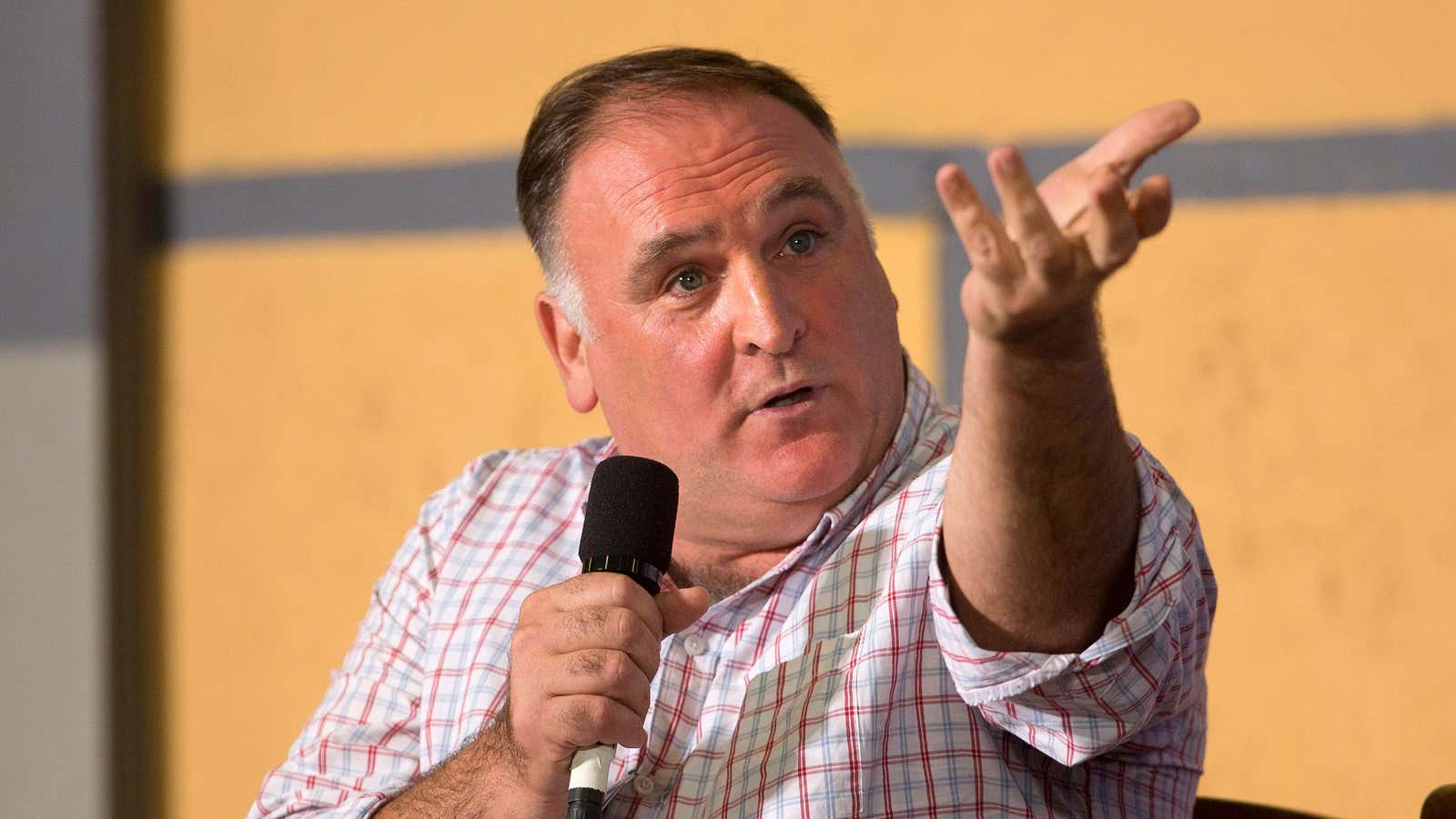José Andrés, the chef, author, and activist, was nominated this week for a Nobel Peace Prize for feeding the victims of natural disasters around the world. His work is significant because he hasn’t just brought food to disaster-stricken communities, but has left the food systems in many places stronger than they were before catastrophe struck. Andrés uses food as a starting point to strengthen vulnerable communities.
Typical post-disaster food relief distributes supplies, often military-style MREs (“Meals, Ready to Eat”), to people who have been left without food and water. There’s nothing wrong with feeding hungry people, of course, but it doesn’t solve the food insecurity and hunger already faced in daily life by many of the hardest-hit victims of natural disasters.
Rather than feeding people and then leaving, Andrés and World Central Kitchen (WCK), the non-profit he founded in response to the 2010 earthquake in Haiti, start with food as a way to address access to education, health, and jobs. In Haiti, WCK supports chef- and hospitality-industry training programs. WCK has also initiated a program to replace wood and charcoal stoves with clean-burning gas in schools in Haiti. Cooking over fires fueled by wood, dung, and other solid fuels can increase the risk for and exacerbate asthma, pneumonia, and other respiratory diseases, and contributes to an estimated 4 million deaths a year, the World Health Organization estimates, disproportionately among women and young children.
In Puerto Rico, the foundation has created a grant program called Plow to Plate to help small food producers—not just to aid the island’s recovery from Hurricane Maria, but to improve the food system there, and create jobs well into the future.
Speaking to host Trevor Noah on The Daily Show to promote his 2018 book, We Fed an Island, Andrés explained that when he went to Haiti to cook in 2010 after the earthquake there, he realized the real power of feeding people. In the refugee camp where he was cooking, he said, people complained that the beans and rice Andrés’ team was serving weren’t cooked properly—they were leaving the beans whole when the local custom was to purée them into a thick sauce.
It seems counter-intuitive, Andrés acknowledged, that hungry people would critique a free plate of hot food. What he came to understand, though, is that eating the food you know to be yours, in the way that you know it to be yours, can be a powerful form of reassurance in the midst of crisis. “Food in essence gives you hope,” he told Noah. “Tomorrow maybe things will be better.”
